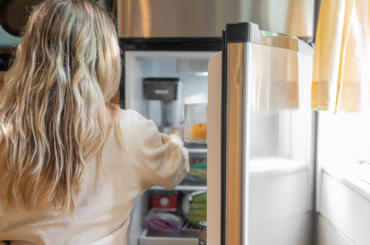When kids lie, it can be frustrating and worrying for parents. Whether it’s a 4-year-old lying about whether they brushed their teeth, a 10-year-old taking a “joke” too far, or a 16-year-old lying to parents about who they were with, it makes you start to wonder: At what age do kids understand — and care about — the difference between telling a lie and telling the truth?
It’s important to keep in mind that kids learn the complex concepts of honesty and lying very gradually. Young toddlers haven’t even developed a conscience yet, while teens are still working on developing a concrete sense of why some lies can be harmful.
So while all parents get frustrated when our kids fib, cover something up, or make up stories we know aren’t true — like it or not, it’s often developmentally appropriate!
Lying, honesty, and moral development stages in kids, by age
If you understand more about where your children are developmentally and why kids lie at different stages, it can help you decode their behavior, respond with more empathy, and come up with age-appropriate consequences when needed.
All kids develop at different paces, but here’s a general guide to how kids develop honesty by approximate age and stage:
Toddlers and preschoolers might enjoy making up stories and using their very active imagination, but they’re too young to understand what a lie is or why you shouldn’t do it.
Around age 5, they may experiment with lying to get out of responsibilities or punishment, but not yet understand that telling a lie is wrong.
By age 6, they should be learning the difference between storytelling, a lie, and the truth, and that telling the truth is a good thing. You can help them along by pointing out examples of honesty in everyday life.
By age 7 or 8, they may purposefully “forget” to tell you things, and can generally stick to a false story and act sincere. They can understand enough to be held accountable for their honesty.
By 9 or 10, they start to recognize how their actions impact others in their lives, as well as the wider community. They begin to see how telling the truth is important in our families, as well as society, by impacting how others see you and how you see yourself.
Once in their tweens and teens, they start to develop a more concrete understanding of the consequences of their actions (like why it could be dangerous if they lie about where they’re going with friends).
Navigating honesty and lying can be difficult for kids — and their parents! For support at each stage of your child’s development, see our guides to the three reasons why kids lie, specific things you can say in each scenario, and how to help kids understand the difference between a lie and a joke.







